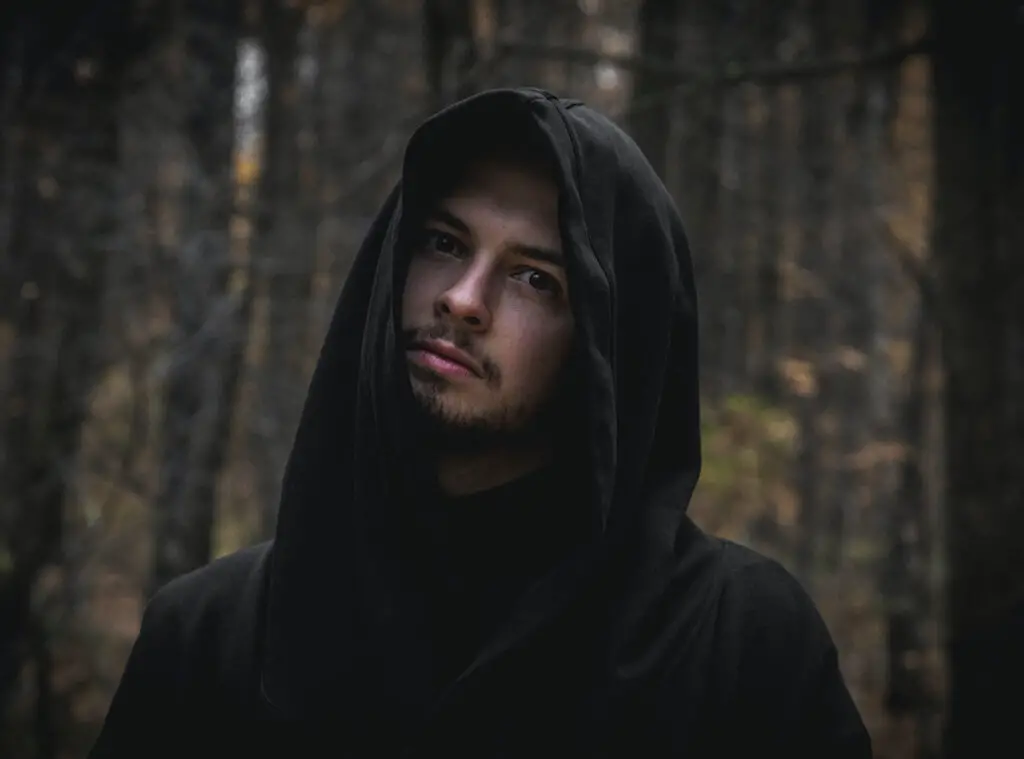Whether you’re a cis-man, male-identifying, or somewhere in between on the gender spectrum, you’re probably wondering, “Can men be witches?”. Certainly. Magick, witchcraft, and the entirety of Wiccan religions; all have incorporated different genders into the practices. But that doesn’t mean every type of witch is open to men entering their coven.
Let’s break down more on whether men can be witches or not and how gender has impacted witchcraft and Wiccan/Pagan religions over the last couple hundred years.
The History of Men in Witchcraft and Paganism
While not as extensive as female witches, male witches do have their spot in history and how they shaped witchcraft as we know it today.
Middle Ages (500 – 1500)
While female witches are the ones we see commonly persecuted in movies and books, that doesn’t mean this wasn’t the case for male witches either. You can trace male witches, sometimes called warlocks (depending on the community), back to around the late 900s to the early 1000s.
They were in much less frequency compared to female witches, which have roots dating back to 100 B.C. It wasn’t until the very end of the Middle Ages that the “witch hunts” really started to take place.
Paganism really meant someone who was rather rural and followed polytheism or other smaller religions relative to their village. Eventually, this also came to mean any non-Christian religion as well, which is why there are so many different takes on the Pagan religion.
Like women, men following a “Pagan” religion were just those people following customs and practices in their area without too much thought behind it.
Modern Era (1500 – Present)
While the modern era does date back to the 16th century, quite a bit of history happened during this time. So, for the sake of keeping things simple and explaining modern-day witchcraft, we’re going to keep this time period to around 1500 to around 1900.
From around 1550 to 1700 was the time of the “witch hunt”. Where people were accused of being witches without real proof. This includes one of the most famous in American history, the Salem witch trials which happened from 1692 to 1693.
Women were the popular target of these witch hunts, but men were also accused and killed for it as well.
Present Times
Despite the issues of witch hunts in the early modern era, Paganism, Wicca, and other witch covens started to sprout in the early 1900s. What we know today as Paganism and Wicca was actually started by a man named Gerald Gardner. This is really a neo-paganism religion and more strictly outlines what it means to be Wiccan compared to the more broad term of Pagan.
While Wicca does practice witchcraft, this doesn’t mean every witch is a Wicca. So don’t feel as if you need to go out and start learning everything about Paganism. Do as you see fit.
Well-Known Male Witches
Male witches are rather common these days. While not making up the majority of them, they aren’t as scarce as they were once believed to be. Here are a few more notable male witches that have shaped the witchcraft community.
Gerald Gardner
As mentioned above, Gerald Gardner essentially created the idea of Paganism and Wicca as we know it today. With the help of one of the high priestesses in his coven, they laid the groundwork for witchcraft spells, rituals, and practices.
You may find those who follow the teachings of Gerald to call themselves Gardnerian Witches. This is in reference to Gerald’s last name, Gardner. There is little to no difference between a Gardnerian Witch and those who refer to themselves as Wicca.
Raven Grimmasi
Raven Grimmasi, real name Gary Charles Erbe, started the Strega Witch offshoot of neopaganism which tends to focus on two deities (not specific), rather than worship the gods equally. This is an offshoot of the Gardenain teachings.
Alex Sanders
Alex Sanders, along with his wife Maxine Sanders, started the Alexandrian Witch offshoot of Wicca. The largest difference between the more “traditional” Gardnerian Witch is mostly the fact that the Sanders felt that the witchcraft practiced was stinted and wanted to explore different types of magick.
Unlike Wicca, Alexandrian Witches practice ceremonial magick on a regular basis for those in the coven. Which is not common in the typical Gardnerian Coven. They’re also strict on those who are looking to enjoy, as they believe only a witch can make you into a witch.
Male Witches Today
Despite movies such as Harry Potter saying male practitioners of magick are called Wizards or Warlocks, the general consensus today is that you’re simply a witch, regardless of gender. Though depending on how you feel, some still refer to themselves as warlocks.
In Neopaganism Wicca traditions, the coven is still typically led by a female matriarch. Even those like Gardner and Sanders believed in the mindset of having females in leadership positions rather than men.
FAQs
What do you call a male witch?
While men were once referred to as warlocks and even wizards in pop culture, most male witches simply refer to themselves as witches. However, it’s up to the individual if they’d like to identify as something other than a witch.
What types of witches can men be?
For the most part, men can classify themselves as whatever type of witch they see fit, with the exception of female-only witch types. For instance, Dianic Witches only have covens that consist of women, rather than a mix like your typical Wiccan coven.

